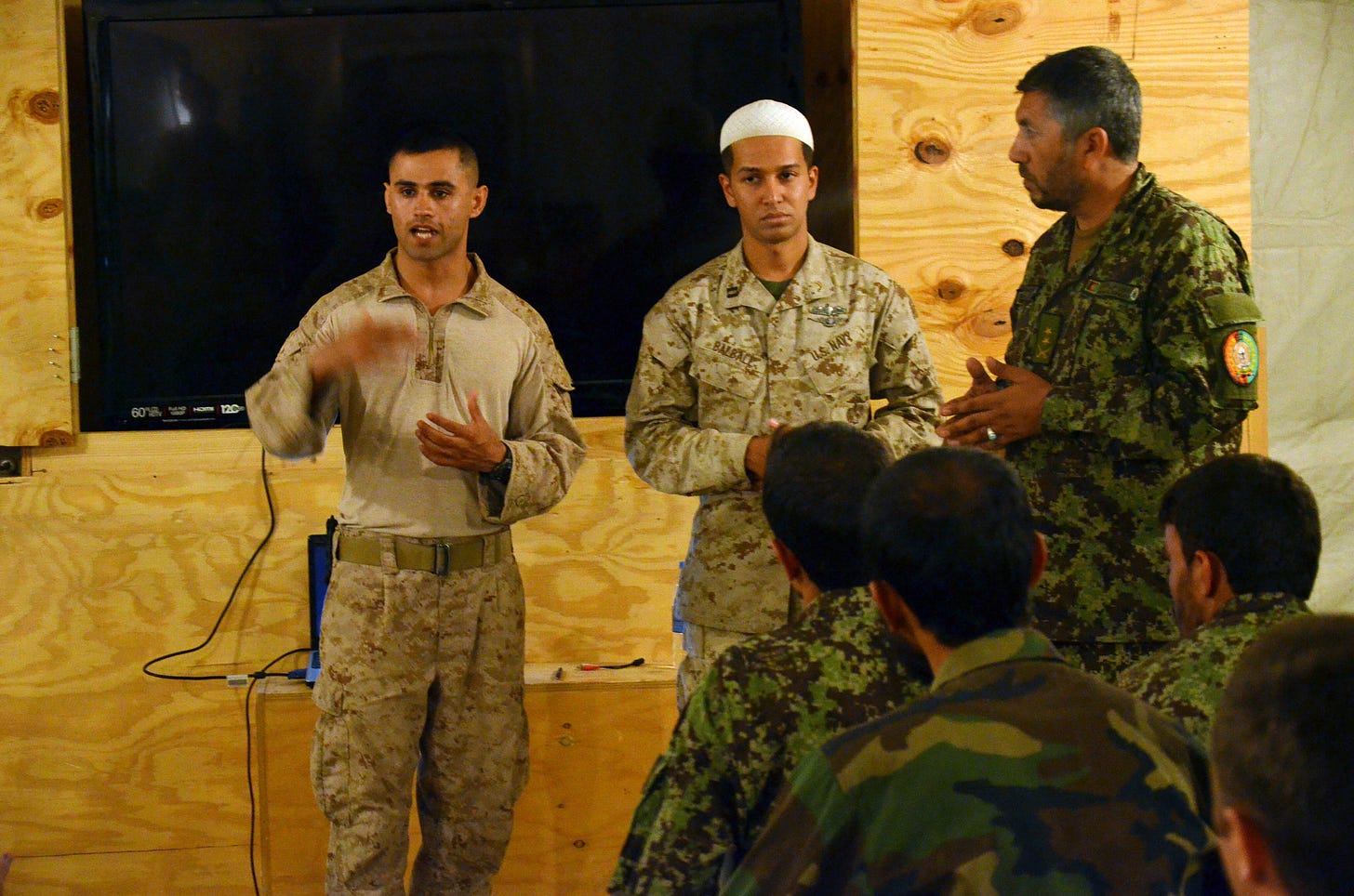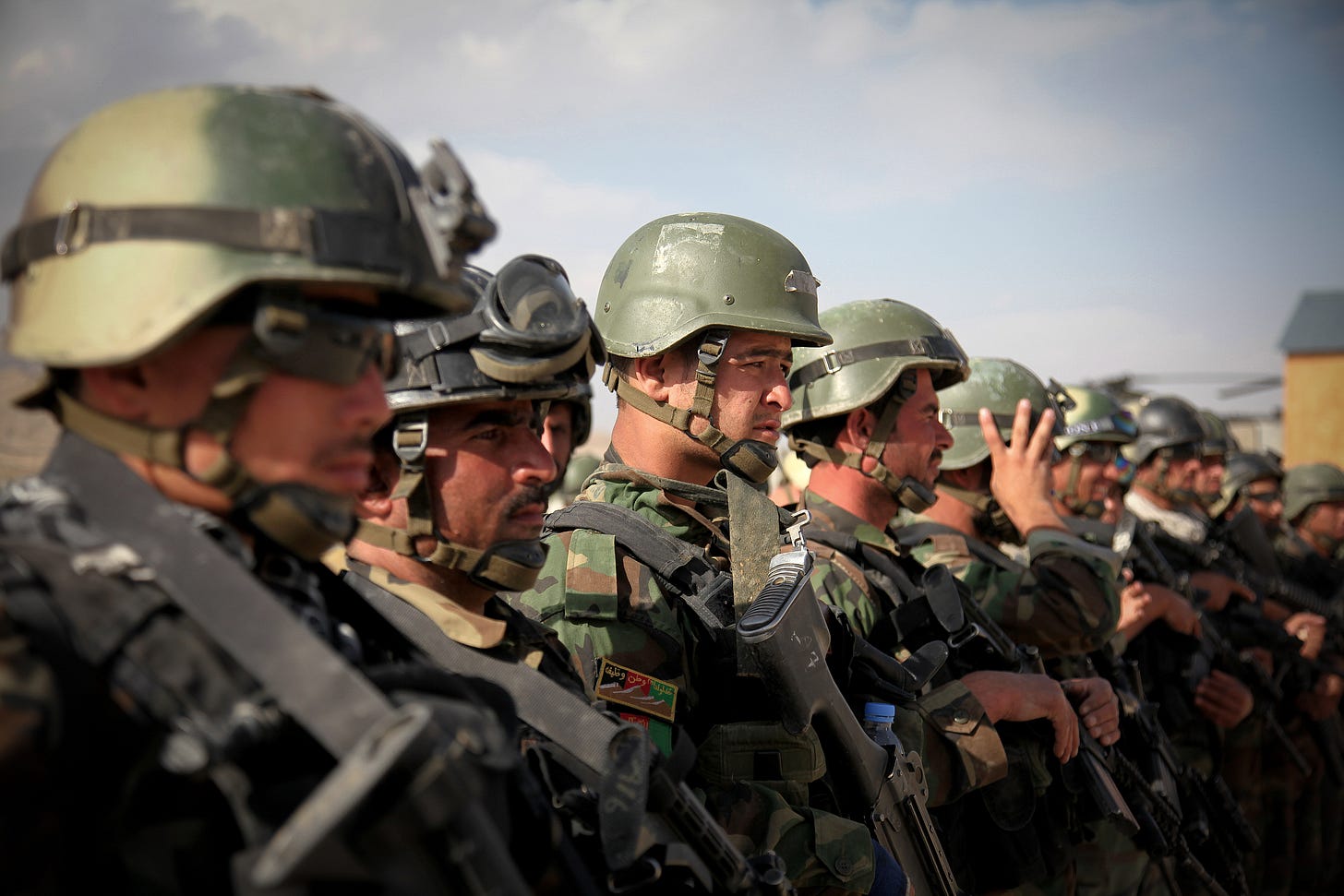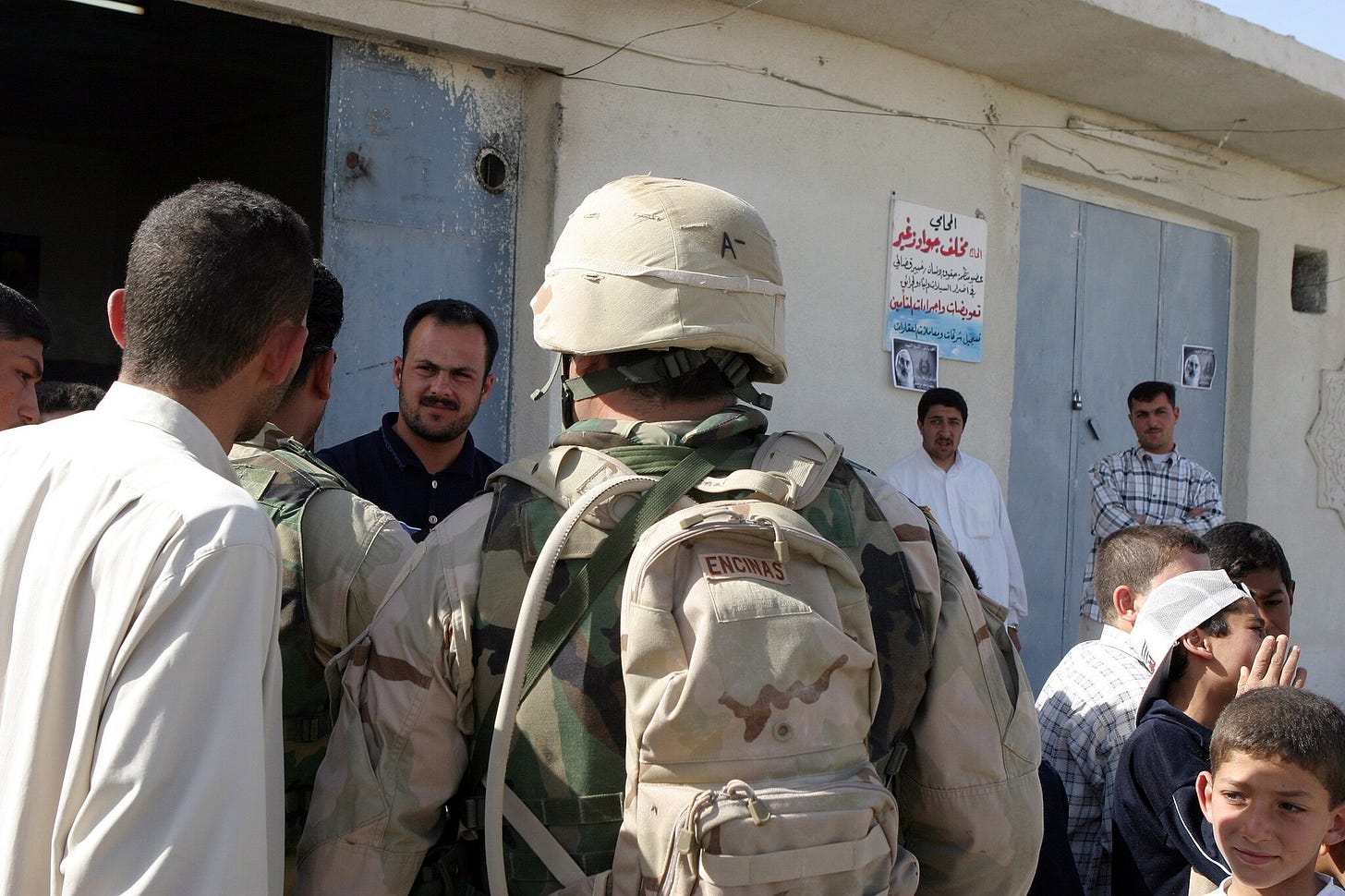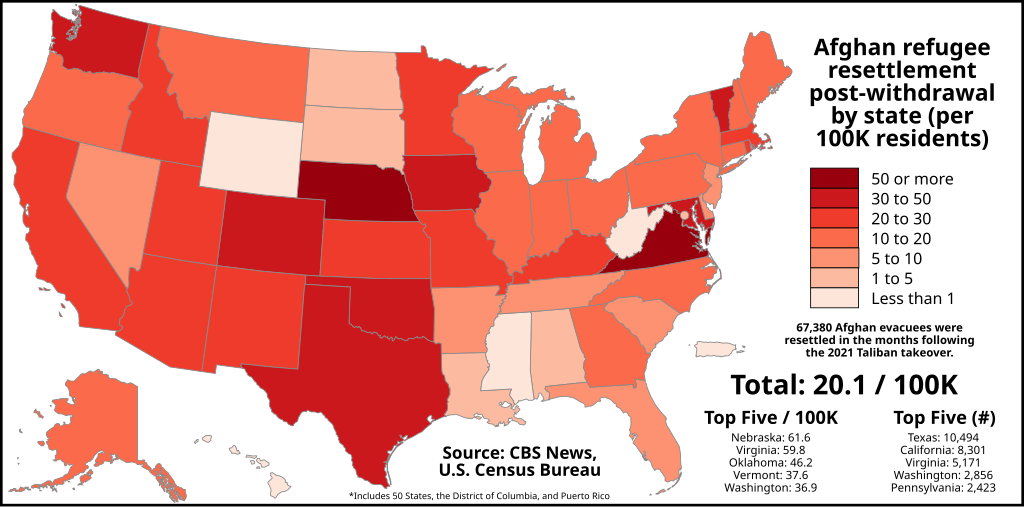
Aziz Rahmani—my cousin nicknamed “Junaid,” or simply “Jun” to the Americans—always had a big, open-hearted smile. He stood tall, brimming with pride every time he put on his interpreter vest and stepped into a U.S. military Humvee. “I’m fighting for both my countries,” he used to say: “the one that gave me life and the one that gave me hope.” If only he knew how that hope would crumble.
In 2009, while traveling by bus from Zabul to Kabul to attend my uncle’s funeral, Junaid was taken hostage by the Taliban. The captors demanded an exchange for four of their top military commanders. However, the U.S. political office in Kabul refused to negotiate, considering it too large a concession. Some of the American soldiers who had grown to love Junaid attempted an unauthorized rescue mission. By the time they reached his location, it was too late. When my family recovered Junaid’s body, we found not just a victim of murder but a man who had been brutally tortured: his nails ripped out, his eyebrows cut, his hair shaved in patches, and even his private parts mutilated. The sight was haunting, and it remains so. I still have those photographs on my computer, stored in a folder I can barely open. Every time the U.S. government breaks another promise to the Afghan people, I see those images again in my mind.
I remember Junaid saying, “We’ll never walk alone. The Americans will protect us.” That hope sustained him through countless firefights, IED threats, and midnight intelligence missions. It also sustained the rest of us Afghans who believed in the ideals of freedom and honor that the United States professed. Whether we were interpreters, special forces, or local guides didn't matter—we all clung to that promise. Yet now, as I watch the Trump administration’s decisions effectively shut down the Afghan resettlement program, I feel that I’m reliving Junaid’s story in a different form. This time, instead of a roadside bus hijacking, it’s political maneuvering binding the hands of those who once claimed to be our allies.
The Trump administration’s stance on slowing and then nearly halting Afghan resettlement seems to confirm fears that have long festered in my community. Many of us ask if this was always the plan: to use Afghan allies when convenient, only to discard them once foreign policy interests shifted. We question whether the secret annexes nested in the Doha Agreement had sealed our fate, handing us over to a resurgent Taliban. We wonder if the entire mission was orchestrated with no intention of making good on the promises made to those who risked everything, believing in American words.
To an American audience, this might sound like a rash conclusion. But put yourself in our shoes. Junaid had unwavering faith that his U.S. military friends wouldn’t forget him. He trusted the politicians and diplomats who called Afghans “partners.” Imagine the heartbreak we felt when he was left to die at the hands of the Taliban. While we’re told that hostage negotiations are complex and that government policy doesn’t allow for the exchange of prisoners in some instances, it’s hard to swallow when you consider the tangible cost: the life of someone who stood shoulder to shoulder with American forces.
Now, two of my cousins—both of whom served alongside U.S. troops—are stuck in Qatar in a state of limbo. They escaped the immediate threat in Kabul but had no clear path forward. They’re told daily to wait and be patient, that the “paperwork is being processed.” Each month, their host camp’s patience wears thinner, and the risk of forced return grows. Their children ask when they’ll see America, the place their father described as a beacon of liberty. How do you answer a child who’s too young to understand geopolitics but old enough to sense something is wrong?
Beyond the moral weight of abandoning loyal allies, what does this mean for the future of U.S. military operations overseas? The United States relies on local interpreters, guides, fixers, and community liaisons in nearly every conflict zone to navigate cultural and linguistic landscapes. These people don’t just provide translations; they often become the eyes and ears of American forces, identifying dangerous terrain and forging crucial relationships. If word spreads that these local partners can be cast aside without a second thought, who will step forward the next time?
Moreover, in many parts of the world, U.S. forces serve dual roles as combatants and diplomatic actors. They encourage local populations to resist terror groups or oppressive regimes, promising support and partnership. But if that trust has been shattered in Afghanistan (and now in Ukraine), it sets a dangerous precedent for future engagements. The promise of an SIV (Special Immigrant Visa) or some form of protection once the mission ends can be the difference between someone risking their life to help—or choosing to stay silent out of fear. This directly affects the safety of American troops and the success of U.S. missions abroad, and the US forces always fight their missions abroad, not at home. Is DV Vance this much of “a dummy” not to understand?
Many of us are left wondering: Where is Secretary of State Marco Rubio, who, upon his confirmation, pledged unwavering support to our Afghan allies? Where is Secretary of Defense Pete Hegseth, a former military officer who understands the sacrifices made by Afghan interpreters and allies? Where is National Security Advisor Mike Waltz, a former Green Beret with firsthand experience in Afghanistan, who once stood by our side in the field? Their voices once filled press conferences, promising expedited Special Immigrant Visa (SIV) processing and safe pathways for Afghan allies.
Yet today, it’s eerily quiet. The halls of power echo with silence, as if the enormity of abandoning those who helped the US forces can be hidden in the hush. Many of these officials were vocal about understanding Afghan culture, language, and the critical roles interpreters and special forces played. But now, the very people they praised—the men and women who stepped forward to guide U.S. forces through hostile territory—have been left in limbo, hunted by an emboldened Taliban.
Reading about policy changes from afar can sometimes feel abstract. But in reality, these policies decide whether someone’s father, mother, or child lives or dies. Afghan families like mine aren’t seeking a “free pass” to enter America; we’re seeking refuge from a regime that sees our collaboration with U.S. forces as an unpardonable sin. The Taliban’s actions against Junaid are a grim reminder of what awaits those with an American connection.
When I recall how I found Junaid’s body—broken by torture, nails and eyebrows removed, his dignity robbed in the most violent way possible—I can’t help but tremble with rage and sorrow. That rage is not directed solely at the Taliban. It’s also directed at the complacency of those in high offices who chose not to negotiate or who turned a blind eye to the immediate danger he was in. I am not ignorant of the complexities of war and diplomacy. But I also know that when your soldier’s life is on the line—when your ally’s life is on the line—you do whatever it takes to save them. At least, that’s what we believed the American creed to be.
Today, thousands of Afghans languish in uncertainty—some hiding in Pakistan, others in the United Arab Emirates, and still others in various relocation centers scattered around the world. Many have run out of legal options. Their visas are expiring. Deportation looms as a death sentence because the moment they land in Kabul, the Taliban will identify them and exact punishment. This is not a distant, hypothetical scenario; it’s an everyday reality faced by people I love, people who once put their own lives at risk to save American soldiers from ambushes and bombs.
I write these words as someone who has lived with hope and heartbreak. My cousin Junaid’s life is no longer a story of heroism but a testament to broken promises. The images of his tortured body remain a dark reminder that words without action are meaningless. Now, two more of my cousins hang in a precarious balance in Qatar, relying on a system that has already shown it can be all too slow, bureaucratic, and indifferent.
If you are an American reading this, ask yourself: Is this the legacy you want your country to leave behind? Is this how you want veterans to remember their service—that the men and women who risked their lives alongside them were left to twist in the wind? Remember the ideals you hold dear—honor, courage, and loyalty. These aren’t just military slogans but are embedded in the American spirit. It’s time to honor them by pressuring lawmakers, advocating for accelerated visa processing, and ensuring safe passage for those stuck in limbo.
Junaid used to say, “The Americans won’t forget me.” In the end, some Americans tried to rescue him, but the bureaucratic machine did not move swiftly enough to save his life. Let us not repeat that failure on a grand scale. We still have a window of opportunity to save countless others—and, in doing so, preserve the values that once made America a symbol of hope for my cousin and so many like him. Let’s not let them down again!






